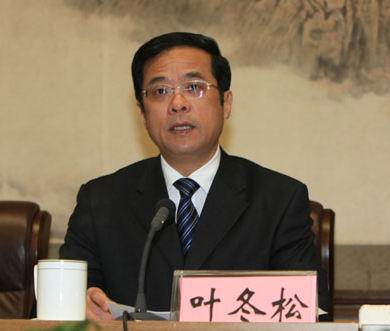
(TibetanReview.net, Feb03, 2015) – China said Jan 28 that 15 local Party officials in Tibet Autonomous Region (TAR) had been penalized last year for violating “political discipline”. In addition, a small number of Party officials, who allegedly joined underground Tibetan independence organizations, had provided intelligence to the Dalai Lama group or engaged in activities deemed harmful to China’s security, had also been put on file for investigation, reported China’s official globaltimes.cn Jan 29, citing the TAR Commission for Discipline Inspection of the Communist Party of China.
The report did not explain what violation of “political discipline” meant but appeared to include what China calls activities to split the country. This appears to emerge from a scmp.com report Feb 2, citing state-run Legal Daily, that the authorities in Xinjiang had investigated 355 Communist Party cadres for breaches of party political discipline last year, a six-fold increase over 2013, in a greater attempt to root out disloyal members.
The report did not give any information on the kind of intelligence that were allegedly provided to the so-called “Dalai Lama clique”, a pejorative collective term China uses for all Tibetan groups and individuals abroad who criticize its policies in Tibet. China has in the past punished Tibetans for such alleged offences after they had given overseas contacts information about protests, detentions, imprisonments and Chinese crackdown measures and actions. While such information have absolutely no implications for China’s security and stability they could certainly embarrass the Chinese leadership.
In Nov 2014, Ye Dongsong, head of an inspection team of the CPC discipline commission, had said after a two-month inspection visit to the TAR that some officials had failed to take a firm stand on issues related to the Tibet question and some grass-root officials in the region were found to be seriously corrupt.
The Ye Dongsong inspection team was part of China’s ongoing nationwide anti-corruption campaign. However, in the case of Tibet, corruption was clearly only a part of the team’s focus of attention, with ethnic Tibetan officials perceived as being pro-Dalai Lama or being not pro-China enough being hauled up for lacking patriotism or for dereliction of duty.
So far China has named only one Tibetan official as a subject for investigation for corruption but none accuse of violating “political discipline”. Losong Tsering, secretary of the CPC committee of the TAR’s Transportation Department, is the subject of an investigation relating to “serious disciplinary violations”, reported China’s online Tibet news service eng.tibet.cn Jan 29. The brief report added that Losong had been transferred to the TAR’s Transportation Department after having served as the Secretary of the CPC committee of Tibet’s Shannan (Tibetan: Lhoka) Prefecture from 2006 to 2011.
Previously, when China launched “strike hard” anti-crime campaigns across the country ahead of important national and international events, their implementation in Tibet had always assumed a similar political hue.
With regard to the current anti-corruption crackdown in Tibet, an editorial comment in globaltimes.cn Jan 29, said, “We should improve the livelihoods of those Party officials who love the country and are loyal to the Party while taking the few that betray the Party and the country as negative examples for others to learn by. It’s the prerequisite for building a healthy environment in the border regions.”


